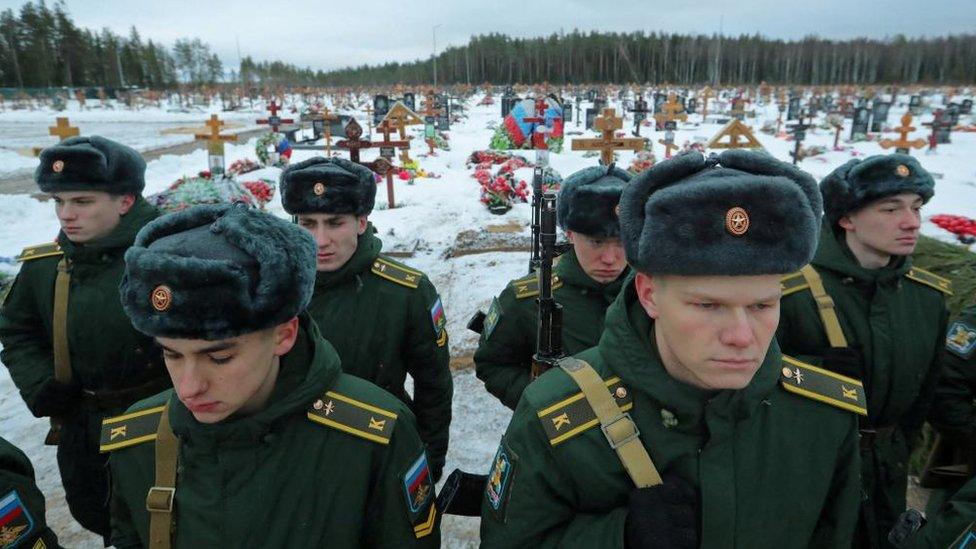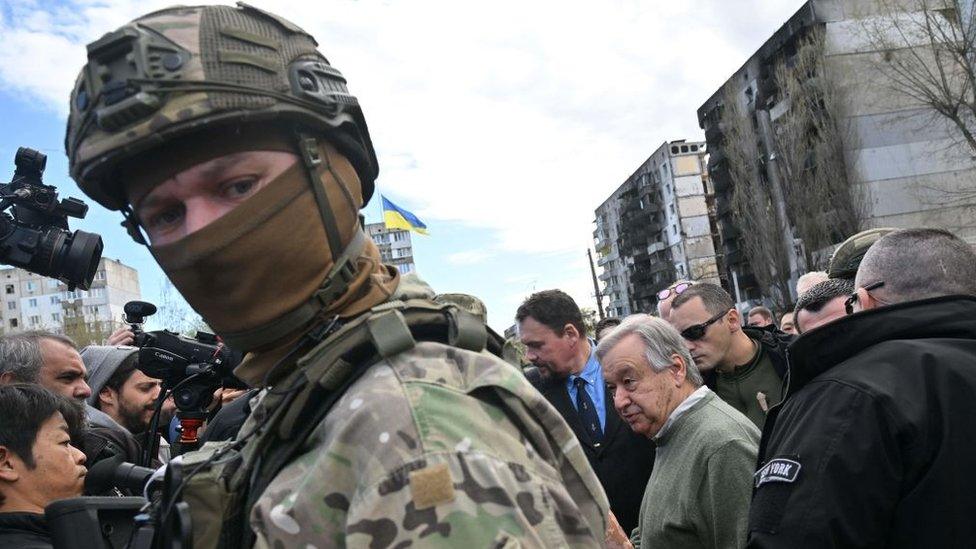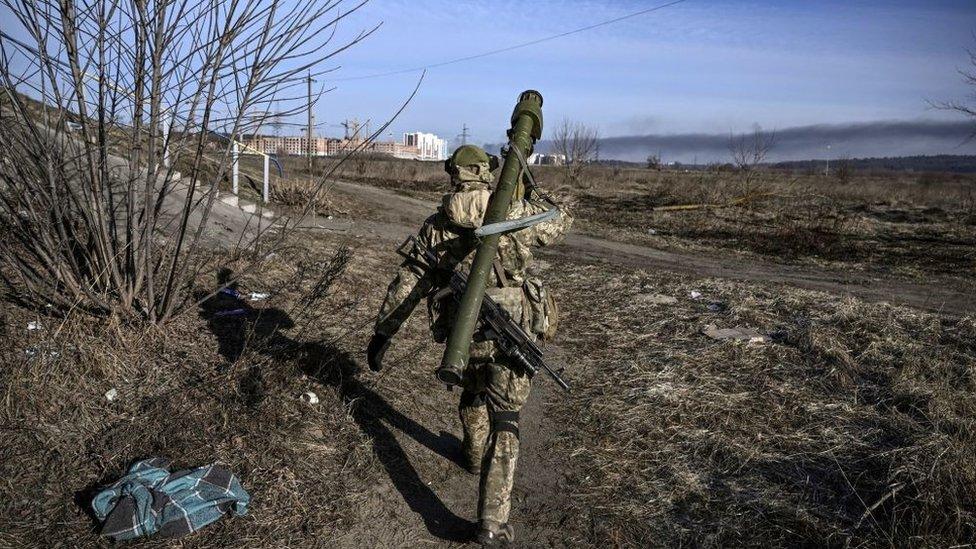Ukraine war: Pentagon leaks reveal Russian infighting over death toll
- Published
Watch: The Pentagon leaks explained in under 60 seconds.
Leaked US documents have revealed that disagreements in Russia's security apparatus led to the defence ministry being accused of undercounting casualties of the war in Ukraine.
Russia has said very little publicly about the scale of its war deaths.
But the files show the FSB security service claimed officials were not counting deaths of the Russian National Guard, Wagner mercenaries and others.
Russia has already warned the leaks may be fake, deliberately dumped by the US.
However, the detail corroborates what was already widely known: that Russia's military and security groups have had frequent disagreements about the handling of the war in Ukraine and that Russia has avoided publicising the numbers of dead and wounded.
The FSB's reported calculation of almost 110,000 casualties by February is still far lower than numbers this week in previously leaked US documents, which estimated Russian losses at between 189,500 and 223,000 casualties, with 35,500-43,000 men killed in action.
Russia's most recent official figure dates back to September last year, when the deaths of 5,937 servicemen were confirmed.
The same document says under-reporting of casualties within the system highlights the military's "continuing reluctance" to convey bad news up the chain of command.
Commentators have often suggested that President Vladimir Putin has been shielded from the extent of Russia's losses on the battlefield, and this assessment appears to be borne out by these communications intercepts, labelled "SI" or Special Intelligence.

More Pentagon leaks coverage:

Another leaked document labelled top secret refers to an "information war" between the defence ministry and Wagner's mercenary boss Yevgeny Prigozhin in February.
Prigozhin repeatedly accused the military of halting ammunition supplies as his men fought to capture Bakhmut in eastern Ukraine.
The leak quotes ministry officials suggesting that they find "allies of equal status to fight Prigozhin rather than doing so itself".
Tellingly, the assessment in the leak asserts that significant losses suffered by Russia's National Guard, or Rosgvardia, will "probably hinder Moscow's attempts to fully secure all of its annexed territories".
Rosgvardia troops have taken part in combat and helped organise Russia's rigged referendums that led to Mr Putin annexing four Ukrainian regions last September.
Little is known about the identity of the leaker, but the Washington Post has reported that he is a gun enthusiast in his 20s, external who worked on a US military base.
According to the Post, the leaker transcribed and then typed up the content of classified documents he had seen on the base, and then posted photos of the documents themselves.
Among the pages of photographed documents, one shows a US assessment of Russia's "grinding campaign of attrition" in Ukraine's eastern Donbas region. It says barring an "unforeseen recovery" by Russian forces, Ukraine will be able to frustrate Moscow's war aims "resulting in a protracted war beyond 2023".
Deputy Foreign Minister Sergei Ryabkov has suggested that the US may have dumped the documents deliberately.
As a "party to the conflict" he argued that Washington may have sought to "mislead the enemy, that is the Russian Federation".

Wagner mercenaries have died in large numbers in the battle for Bakhmut - these military cadets attend a mercenary's funeral
However, another intriguing leak cites Russia's Main Operations Directorate hailing a successful operation in early February aimed at convincing Ukrainian intelligence of a potential joint Russian-Belarusian offensive from Belarus.
As Russia's military campaign in the east stalled in the run-up to the anniversary of the war, there had been reports of a Russian military build-up in Belarus with the aim of reviving its failed invasion from Belarusian territory the year before.
Kyiv was forced to move troops to defend the area from possible attack, diverting them from the front lines in the east and south.
The leaked document cites a Directorate official recommending two more phases of activity in March "to further mislead Ukrainian forces". The leak makes clear the plans were being sent to Belarus's military chief for approval.
- Published13 April 2023

- Published11 April 2023
